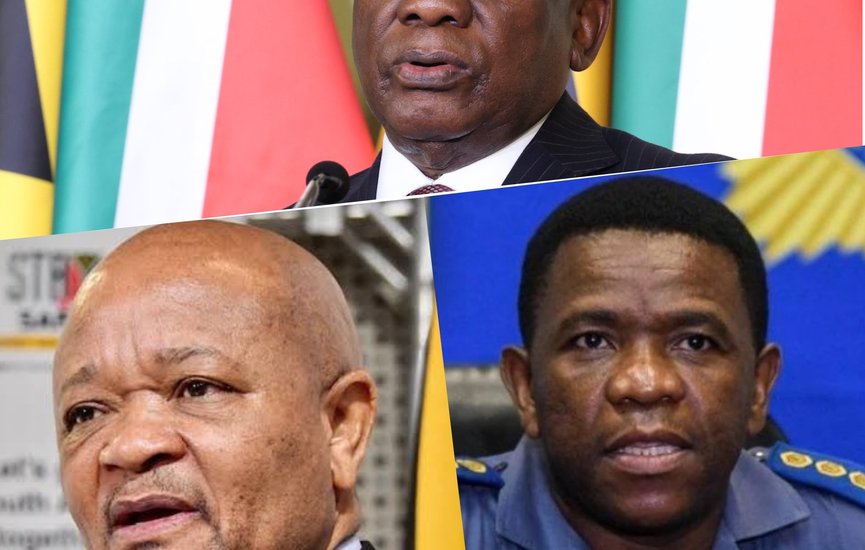In a dramatic late-night address to the nation, South African President Cyril Ramaphosa announced the immediate suspension of Police Minister Senzo Mchunu amid damning allegations linking him to organized crime. The president also unveiled plans for an independent commission of inquiry to investigate the alleged infiltration of state institutions by criminal networks.
The move marks a stunning fall from grace for Mchunu, 67, a senior African National Congress (ANC) figure long considered a pillar of integrity and even a potential successor to Ramaphosa. Mchunu has vehemently denied the allegations.
“In order for the Commission to execute its functions effectively, I have decided to put the Minister of Police, Mr. Senzo Mchunu, on a leave of absence with immediate effect,” said Ramaphosa. He noted that the Commission would probe the involvement of current and former state officials suspected of aiding or shielding organized crime within the country’s security apparatus.
The bombshell announcement followed an unprecedented press conference earlier this month by KwaZulu-Natal Provincial Commissioner Lieutenant-General Nhlanhla Mkhwanazi. Defying protocol, Mkhwanazi accused Mchunu of receiving payments from a known corruption suspect and claimed that the minister disbanded a police task force investigating political assassinations under external pressure.
The allegations, if substantiated, point to a deeply entrenched criminal network operating within South Africa’s law enforcement and intelligence structures—a claim Ramaphosa acknowledged during his speech.
Yet while Ramaphosa’s decision to act against Mchunu is notable, it has done little to quell growing public and political skepticism about his leadership style. His critics say the president’s instinctive reliance on commissions of inquiry—rather than swift executive action—has become a hallmark of inaction, especially when the stakes are highest.
The Democratic Alliance, South Africa’s main opposition party, wasted no time in criticizing Ramaphosa’s response. “These allegations provided the President with an opportunity to show bold and firm leadership,” the party said. “Instead, he has once again outsourced executive responsibility to a commission... South Africans have grown cynical of talk shops, task teams, and commissions which they see as buying time and avoiding accountability.”
The Daily Maverick echoed the sentiment in a scathing editorial, accusing the president of having a “commission of inquiry addiction,” pointing to a growing pattern of high-profile probes that yield limited follow-through or consequences.
This latest scandal places further strain on the already fragile Government of National Unity (GNU), formed last year after the ANC lost its parliamentary majority for the first time since the end of apartheid in 1994. The GNU, comprising rival parties bound together by necessity more than ideology, now faces yet another test of its durability and cohesion.
For many South Africans, the crisis underscores a grim reality: that organized crime may be more deeply entrenched in the state than previously imagined. And while Ramaphosa’s rhetoric on anti-corruption remains intact, his capacity to restore public trust is now in serious question.
As the commission prepares to deliver its preliminary findings in three months, the nation watches not just for answers—but for action.
